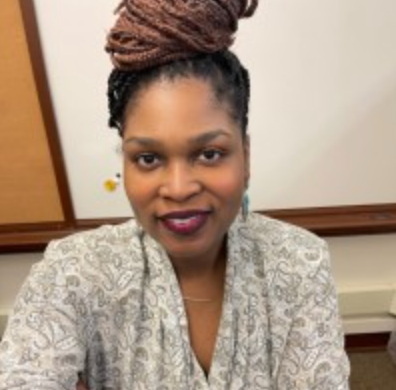Life with Lupus: Stacey Kennedy-Conner on Advocacy and Empowerment
Stacey Kennedy-Conner shares her inspiring journey of becoming a patient advocate and educator with the PALS program, promoting diversity and participation in lupus research.
By
Lana Pine
| Published on December 30, 2024
6 min read
Stacey Kennedy-Conner
Credit: LinkedIn

In an interview with The Educated Patient, lupus advocate Stacey Kennedy-Conner discusses her journey from being diagnosed with lupus as a teenager to becoming a voice for patient empowerment through the Patient Advocates for Lupus Studies (PALS) program. PALS is a peer-to-peer education program designed by Lupus Therapeutics, the clinical research affiliate of Lupus Research Alliance, to increase awareness, participation and diversity in clinical trials.
Let’s start from the beginning — can you tell me about being diagnosed at age 15 and how that experience impacted you physically, emotionally and socially?
Stacey Kennedy-Conner: Sure. Leading up to my diagnosis, I was experiencing a lot of symptoms — rapid weight loss, persistent rashes — and my family kept taking me in and out of the hospital. I was officially diagnosed with lupus at 15, and shortly after, I spent about two months in the children’s hospital because of complications from the disease.
It was a whirlwind for my entire family. Suddenly, our lives revolved around hospital visits and treatments. My school was very supportive — they allowed me to complete work from home and gave me extended time on tests when I needed it. But at that time, my social circle consisted of my family, doctors and nurses.
Eventually, I began to understand how to navigate life with lupus. I joined support groups and connected with the Lupus Society of Illinois here in Chicago. Finding a community of others who were dealing with the same illness made a huge difference.
How did you first get involved with support groups and patient advocacy organizations like the Lupus Society of Illinois, Lupus Research Alliance and the PALS program?
SKC: It all started with the Lupus Society of Illinois — that was my first connection to an organization focused on lupus. Through them, I learned about Lupus Therapeutics and eventually the PALS program, thanks to a doctor who introduced me to these opportunities. The Lupus Society really opened my eyes to advocacy work and how I could support others. When I got involved with the PALS program, I felt like I’d found a home. It was a place where I could truly make a difference and support others navigating this disease.
As someone who has participated in clinical trials, what has your experience been like? How has it shaped your perspective on the importance of lupus research?
SKC: I’ve had great experiences with clinical trials, largely because I’ve always felt well informed. I knew exactly what to expect from how often I’d need to visit the clinic to what the process would entail. My first introduction to clinical trials came when I was diagnosed. A pediatric rheumatologist explained their importance, and that message stuck with me.
When I later had the chance to participate in a trial, I didn’t hesitate. I didn’t go into it thinking only about how it might help me; I was thinking about the future and about people who haven’t been diagnosed yet or are just beginning their journey. Clinical trials are a way to change the trajectory of lupus care for others, and that mindset has always motivated me.
What has been the most rewarding part of your work as a patient advocate, particularly with the PALS program?
SKC: There are so many rewarding aspects, but the one that stands out most is the educational piece. I love helping people understand the importance of clinical trials and dispelling myths — like the idea that trials aren’t safe or that they aren’t for everyone.
It’s especially meaningful to address the historical mistrust of clinical trials in communities of color and show people that things have changed. When someone tells me they asked their doctor about a trial because of something I said, or that they’re considering participating, even if they don’t qualify — it’s so fulfilling. It means they’re listening, and they’re empowered to make informed decisions. That, to me, is everything.
What advice would you give to someone living with lupus who feels overwhelmed by the physical and emotional challenges of the disease?
SKC: I always tell people to “look within and then look out.” First, identify your support system — whether that’s family, friends or someone who can be an extra set of ears during doctor’s visits. Having someone to lean on makes a big difference.
Then, look outward. Seek out support groups or online communities where you can connect with others who truly understand what you’re going through. It’s incredibly comforting to hear someone say, “I get it,” and really mean it. That sense of community can be a lifeline.
Is there anything else you’d like our audience to know?
SKC: I just want to emphasize how grateful I am to be part of the PALS program and to work with Lupus Therapeutics. It’s been such an incredible opportunity to raise awareness about clinical trials, especially in communities of color. My hope is that these conversations help us move closer to a cure for lupus while improving treatments for those living with the disease.
This transcript was edited for clarity.

